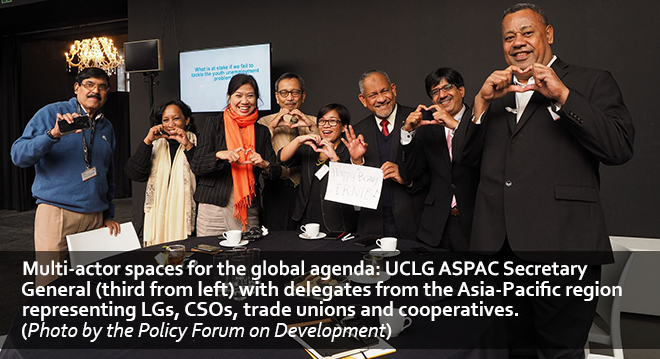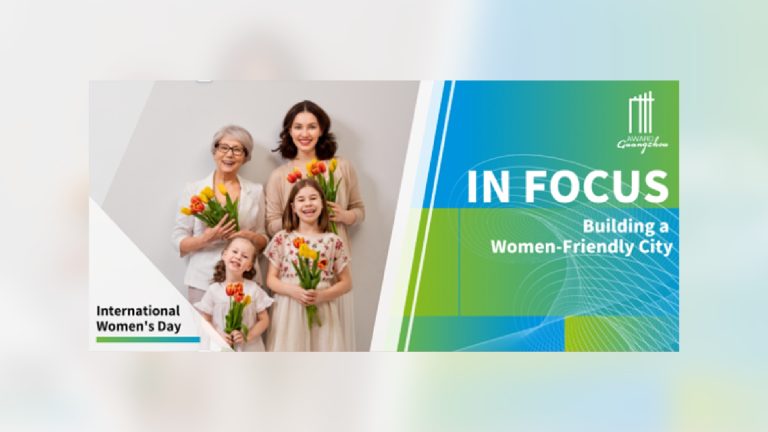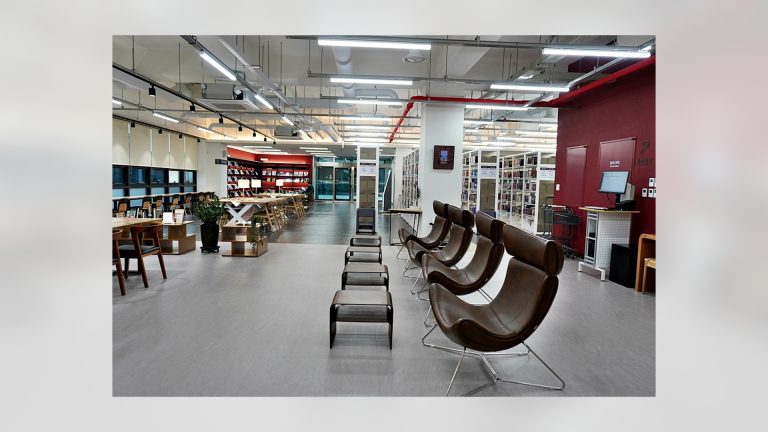IT is recognized that the implementation of the SDGs will be a slow, gradual process, and it is widely acknowledged that the SDGs will not be achieved without the active participation of the local level. The 4th Global Meeting of the Policy Forum on Development (PFD), held in Brussels from 14 to 16 March 2016, brought the discussion under the spotlight. UCLG ASPAC was represented by its Secretary General, Dr. Bernadia Irawati Tjandradewi, who spoke during one of the sessions. Other members of PFD representing Local Governments in Asia-Pacific, Hemanthi Goonasekera from theFederation of Sri Lankan Local Government Authorities (FSLGA) and Anwar Hussain from the Local Councils Association of the Punjab (LCAP), also attended the meeting.
The meeting reunited with more than 160 representatives from civil society organizations (CSOs) and Local Authorities (LAs), the private sector, the European Union (EU), EU institutions and Member States. Besides highlighting the importance of collaboration between CSOs and LAs, the meeting discussed the progress of the EU Development Policy, the latest updates on the Cotonou Policy, and key events in the global agenda.
As one of PFD’s partners in a research on enabling environment for the implementation of SDGs, UCLG ASPAC shared in the meeting the results of the Focus Group Discussion on the topic that it was organized a few days earlier with the PFD in Jakarta. Indonesian researcher Dr. Wicaksono Sarosa, together with a researcher from the Netherlands, opened the panel by sharing country level findings about how PFDactors are engaging in the implementation of SDGs.
The panel that followed, where UCLG ASPAC Secretary General shared the stage with other speakers, discussed the enabling environment needed by local governments in effective implementation of the SDGs. The panel also discussed the challenges derived from the large number of goals and targets inAgenda 2030, such as the complexity in developing national strategies and the increasing restrictions that CSOs arefacing in many parts of the world.
The participants were then split into different groups to share views on how to strengthen multi-stakeholder approaches to support an enabling environment: at country level; to support policy influencing; to support the implementation of a rights-based approach; and how to enhance donor support.
The meeting concluded that global goals demand improved forms of coordination from all actors involved in international cooperation. These need to take into account the relevant roless and contribution of different stakeholders (e.g.: governments, private sector, CSOs, LAs, and trade unions) and the use of instruments (e.g.: joint programming, and use of country systems) that are more adequate for the requirements of the implementation of the new global agenda.
Multi-actor spaces are therefore proving to be a useful tool to find common ground and advance together; building consensus around collective development goals, and good examples of those should be replicated in the PFD and beyond.











